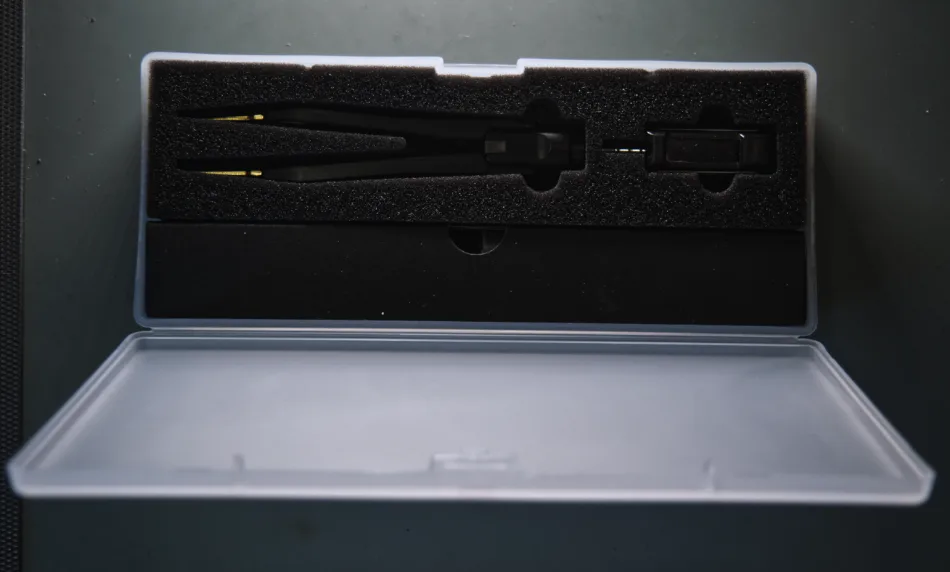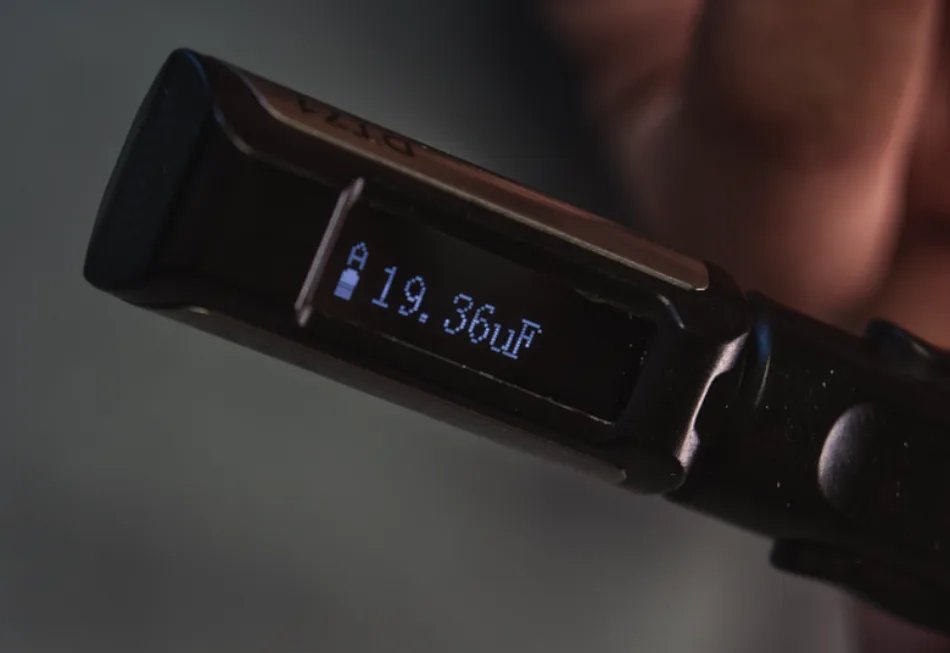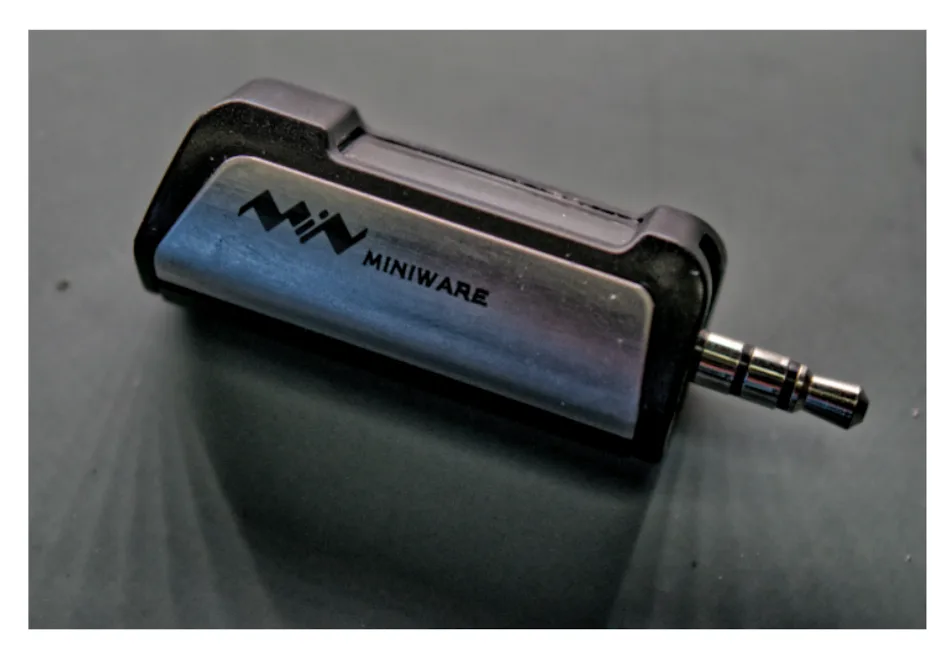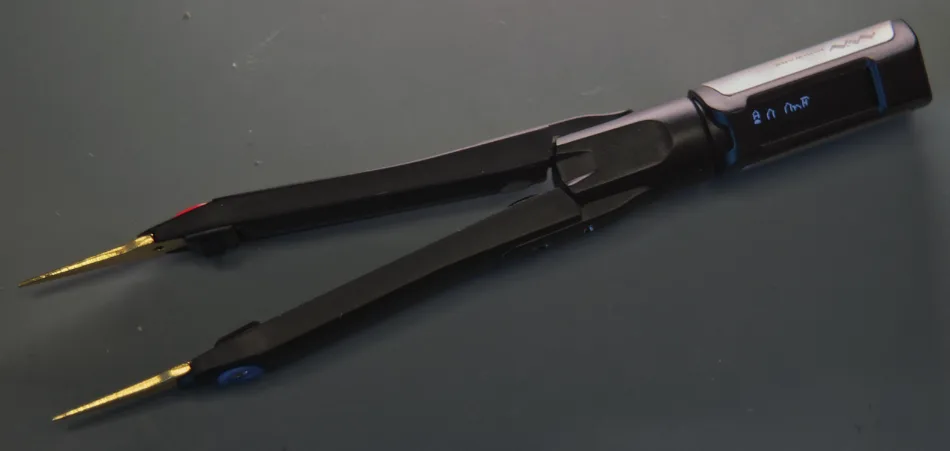Miniware DT71 Smart Tweezers
The Miniware DT71 Smart Tweezers offer a great all-in-one solution for small component identification at an affordable price. Constant firmware updates improve performance and accuracy.
Pros
- Complete LCR solution in a tiny package
- Great build quality and novel design
- Relatively precise
Cons
- Proprietary data and charging cable
- Automatic detection sometimes temperamental
Measurement equipment is a key part of an electronic workbench – and there’s no doubt good equipment is necessary for any serious work in the field. Companies like Tektronix, Agilent and Fluke are among the biggest and most respected brands in the field – with an iron grasp over the market. Many of these mainstream options can be bulky or impractical in some usage scenarios. This is why today, hauling from China’s edesign we have the Miniware DT71 Smart Tweezers – a lightweight piece of measurement kit meant to be used for quick checks and component identification – for an impressive $70. It’s clear that a lot of engineering has went into making these as compact and affordable as possible while maintaining an appropriate level of accuracy in measurements.
The attractively-styled box opens up to reveal a nifty hard-shell carrying case in which the unit itself lies within. Well, calling it a “unit” is a bit of a misnomer – as the Miniware DT71 features two distinct parts in its construction – the tweezer tip base (which contains the two batteries powering the Miniware DT71) and the measurement processor which simply attaches atop with a 4-pin TRRS jack. This provides enough connections to enable full differential measurement – one of the big highlights of the tweezers.

But what do they exactly do? Quite a lot, actually! The basic functionality is that of an LCR meter – measuring resistance, capacitance, inductance, frequency, voltage and also offering diode testing. There’s also a built-in rudimentary signal generator and a nifty auto-identification mode which also supports secondary readings (likely due to using a more complex waveform while measuring). The battery life is great – easily reaching 12h of constant use on one charge. Standby battery drain is negligible, especially with the controller head unplugged.
Physically, these are gorgeous. There’s no springs or other mechanical tensioners. Instead, e-design decided to put in two sets of magnets which perfectly balance out and offer just the right amount of resistance to emulate a physical spring. This both offers a better feeling device and a higher quality construction with less moving parts prone to wear and tear. One minor design quirk is the capacitive button used for all operations. While it’s sleek and goes with the entire theme of the device, we would preferred a physical push-button. The capacitive surface works great – it’s just missing that tiny bit of haptic feedback needed to reassure us that we indeed have just done something.

The tips on these are relatively sharp and are gold plated (with a very cute design imprinted on the sides). Most importantly, they are replaceable, and a set of spares is even provided in the box. e-design promises different tip types will be available in the future, which would definitely be interesting to see.

One nice feature is the support for both left- and right-handed use thanks to an accelerometer in the control unit which automatically inverts the screen when required. Great attention to detail there.
The charging solution is unique – with a highly custom cable being used to both charge the base and transfer data to and from the controller unit. If you lose it – you ’re pretty much done for.
Now comes the most important part of the review – measurement performance. The design team has been pushing out regular firmware updates aimed at making the DT71 perform better and be more stable. Early reviews have noted some issues in certain measurement ranges, but we are happy to say that as of the current software build (V1.15 at the time of testing) the measurements seem reliable, tested against our Fluke 289 using our lab setup.

All manual mode measurements were well within spec, with even some challenging ones (9.26V being measured as 9.29V) being extremely close and precise enough for most scenarios. Resistance measurements were on point in all of the tests we ’ve ran. In the automatic measurement mode there were some minor inaccuracies in detecting component types – but nine times out of ten the Miniware DT71 got it right the first try – and even produced great secondary measurements for components like capacitors. The inductance measurements are somewhat imprecise – but most budget LCR meters also struggle here, so we can’t complain too much about it. Our only gripe is the lack of reverse-polarity measurement for voltage – instead of a negative readout, the meter simply reports “negative”. Luckily, it is protected, so no harm done here!

These are legitimately great results – and we’re more than happy with them! Keep in mind that the main use case of these is quickly identifying electronics, and especially SMT components – and the Miniware DT71 delivers. It’s rather quick in auto-ranging, precise enough to let you know exactly which component you’re picking up and is just plain convenient. If you’ve ever tried to probe a tiny surface-mount resistor using full-size probes, you’ll know just how tough it can be.

And that’s a wrap! The Miniware DT71 is legitimately great. It performs better-than-spec, it feels great to use, has a wide array of quick measurements and somehow even packs in a rudimentary signal generator in there. It’s a potent package for an impossibly low price that works great for its intended use case, but is also a handy secondary voltmeter or a quick LCR meter for on-the-fly troubleshooting. It’s worth it for the utility alone. We can’t but whole-heartedly recommend it to anyone dealing with SMT components regularly. It’ll make your life better. Seriously.
More information: https://www.miniware.com.cn/product/dt71-mini-digital-tweezers/
- teenage engineering OP-XY review: after dark - 06/01/2025
- Mehatronika interviews: Rodrigo Sim - 05/17/2025
- LattePanda Mu i3-N305 review: More power - 03/16/2025
